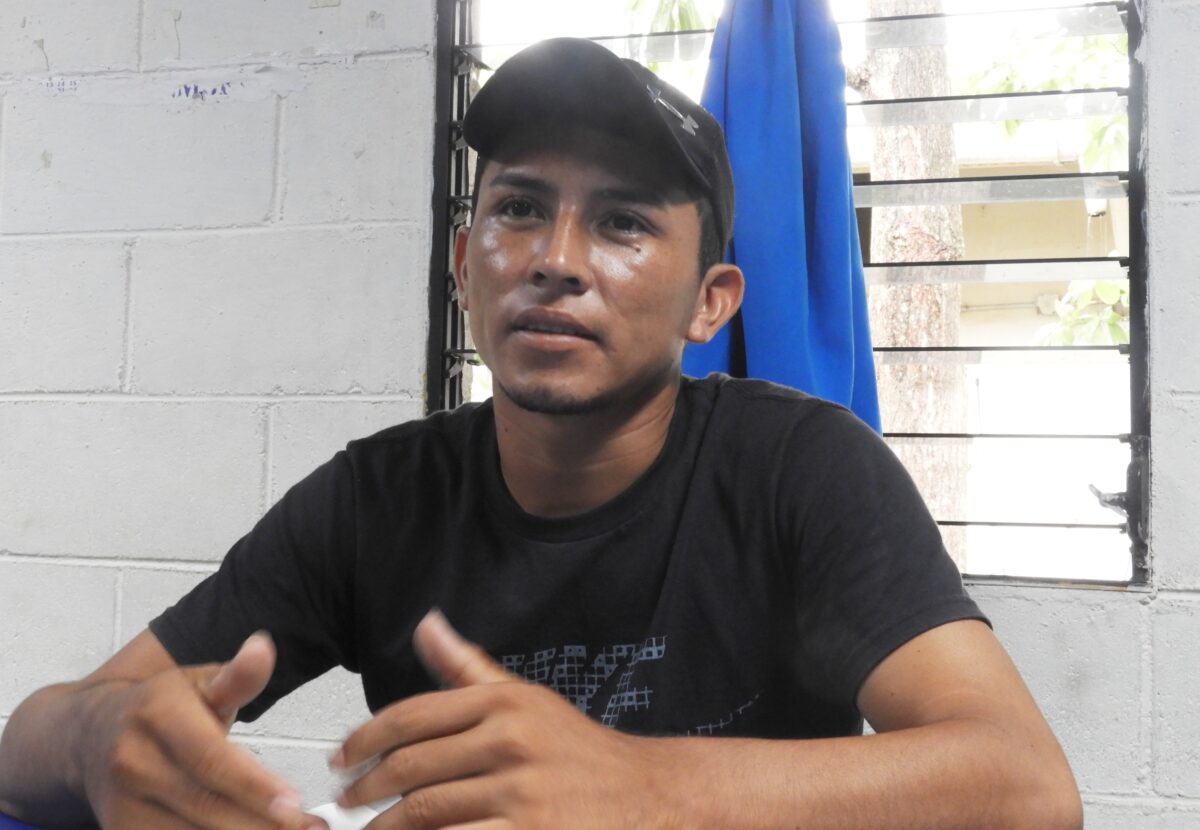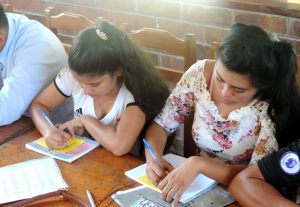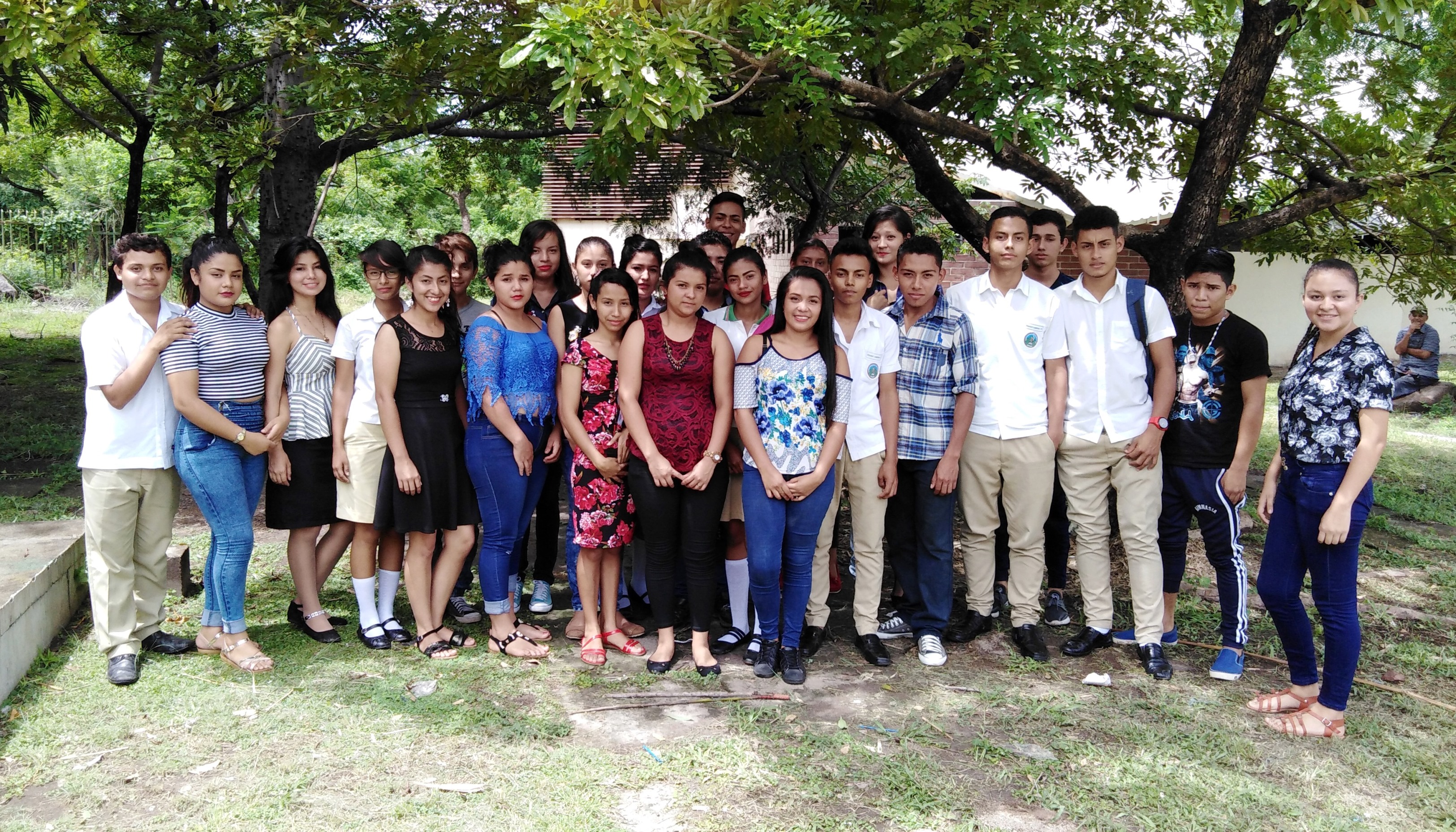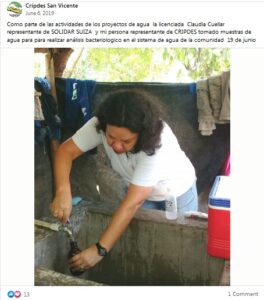CRIPDES Regional Support, Rights for Youth and Women, Sister Cities
Supporting a young organizer in San Vicente
(EN ESPAÑOL ABAJO)
After having participated in our delegation focused on the issue of migration, Professor Patricia Rodriguez did not forget what the inhabitants of the Santa Marta community in San Vicente shared with her, and decided to partner with Professor Sofía Villenas to apply for a grant at Cornell University. Thus was born the project “Grassroots Transnational Networks Fortifying Salvadoran Rural Communities: From Santa Marta to Ithaca”.
In short, the project involves the collaboration of academics, activists, rural communities in El Salvador, faculty from Cornell University and Ithaca College, and several different community organizations based in Ithaca, NY and Maine (Sister Cities), in addition to WRFI Community Radio, especially with the purpose of creating content focused on local immigrant residents telling their own stories of migration, the impacts of discrimination and immigration law, as well as sharing about their family, communities and the land they have left behind.
In El Salvador specifically, the project will support with the hiring of an organizer for CRIPDES San Vicente who, in addition to supporting the goals of this project, will help promote the other activities carried out by the team, with the goal of finding new partnerships for the organization.
After sharing the profile required for this project, the community board of Santa Marta shared their recommendations and, eventually, Gonzalo Molina was hired.
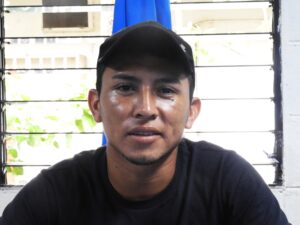
GONZALO IN HIS OWN WORDS
I’m 22 years old. I live with my parents. I worked for three years in the VIDA project. That benefited me and my family a lot on a personal and financial level. It gave me the knowledge: there I learned how to graft.
When I entered the project, crime was still high in the area and I could not go to study. When I could, I started going to the university. I studied agroecology for a year, but I had to drop out due to financial problems. This year I reapplied thanks to the fact that I made a nursery with grafted plants. I also started producing vegetables, tomatoes and chili for the family and some to sell, as well.
When I was seven I started working with the cattle that my family had. At three thirty we had to get up to milk. I only tied the cows back then until I learned the rest.
My grandfather and his children started a cooperative after Hurricane Mitch. A loan was taken out to buy the land.
Two cousins and I took care of the cattle. I was studying at the same time. In high school, sometimes I only had money for transportation.
When my uncles started their families, some of them went to the United States. The cattle were divided. At some point we had had more than a hundred animals.
By then criminals had started stealing in the area. Once eleven cows were stolen from us.
After they sold their cattle, momentum was lost. It was very nice to work there, because everything was well organized and we supported each other when one wasn’t able to work. Doing something like that by yourself is more difficult, because there is no one to cover you if you’re unable to work.
Most of my friends and those who grew up together in the community have gone to the United States. It is regrettable. Some leave and sometimes they can’t even get there. Sometimes they end up worse than they were before they tried to migrate.
A young man made his father sell his land (to pay the coyote). He could not get to the U.S. and they lost the land.
My cousin was locked up by the Zetas. Luckily, that day other people who were there had planned to escape and they all took advantage. They fled, despite the bullets flying over their heads. He was with his little girl and his wife. They managed to flee because a taxi driver drove by. He let them get on and told them that that was a really dangerous area. They managed to stay in the United States. It was very hard to get there and now he lives like a slave. From home to work.
They have asked me to leave, but I never wanted to.
At some point I was part of the Santa Marta youth group. But the group was demotivated since the mayor’s office came only once a year. With Alfredo (López) we began to organize again, with the carpentry workshops and production initiatives (supported by Solidar Suiza). In 2019 I received two cows and I managed to have more. Later I bought a piece of land and a motorcycle. It helped me, but not everyone takes advantage of this kind of support. There are people who want to see the results immediately. Some despair and sell their initiative.
I liked this opportunity of working with CRIPDES because I admire the work that the organization does.
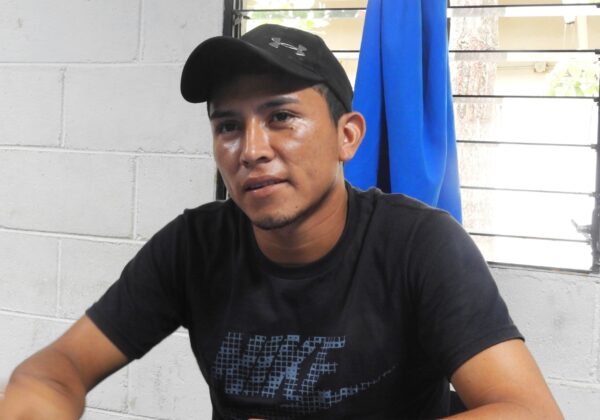
Después de haber participado en nuestra delegación enfocada en el tema de migración, la profesora Patricia Rodriguez no olvidó lo que le compartieron los habitantes de la comunidad Santa Marta, en San Vicente, y decidió asociarse con la profesora Sofía Villenas para aplicar a una beca en la universidad de Cornell. Así nació el proyecto “Redes trasnacionales de organizaciones de base y ‘migraciones'”.
A grandes rasgos, el proyecto implica la colaboración de académicos, activistas, comunidades rurales de El Salvador, el profesorado de la Universidad de Cornell y el Ithaca College, y varias organizaciones comunitarias diferentes con sede en Ithaca, NY y Maine (Ciudades Hermanas), además de la Radio Comunitaria WRFI, especialmente con el propósito de crear contenidos centrados en los residentes inmigrantes locales contando sus propias historias de migración, las consecuencias de la discriminación y la aplicación de la ley de inmigración, además de compartir sobre la familia, las comunidades y la tierra que han dejado atrás.
En El Salvador específicamente, el proyecto apoyará con la contratación de una persona organizadora en la región de San Vicente que, además de apoyar en las metas de este proyecto, ayudará a promover las demás actividades que realiza la regional con el objetivo de encontrar nuevas alianzas para la organización.
Después de socializar el perfil buscado para el proyecto, la directiva de la comunidad de Santa Marta compartió sus recomendaciones y, eventualmente, se contrató a Gonzalo Molina.
GONZALO EN SUS PROPIAS PALABRAS
Tengo 22 años. Vivo con mis padres. Trabajé durante tres años en el proyecto VIDA. Eso me benefició mucho a nivel personal y económico, tanto a mí como a mi familia. Me dejó el conocimiento: ahí aprendí a injertar.
Cuando entré al proyecto, aún estaba difícil el problema de la delincuencia y no podía ir a estudiar. Cuando pude, inicié la universidad y estudié agroecología durante un año, pero tuve que dejarlo por problemas económicos. Este año lo retomé gracias a que hice un vivero, con plantas injertadas. También empecé a producir hortalizas, tomate y chile para la familia y algunas también para vender.
A los siete años empecé a trabajar con el ganado que tenía mi familia. A las tres y media nos tocaba levantarnos a ordeñar. Yo solo amarraba las vacas en ese entonces. Después aprendí lo demás.
Mi abuelo y sus hijos empezaron una cooperativa después de la tormenta Mitch. Se sacó un préstamo para comprar el terreno.
Dos primos y yo nos encargábamos del ganado. Llevaba los estudios al mismo tiempo. En bachillerato, a veces solo tenía para los pasajes.
Cuando mis tíos empezaron a formar sus hogares, unos se fueron a Estados Unidos. Se repartieron el ganado. En algún momento habíamos llegado a tener más de cien animales.
Ya para ese entonces delincuentes habían empezado a robar ganado en la zona. Una vez nos robaron once vacas.
Con las ventas, se perdió el impulso. Era bien bonito trabajar ahí, porque todo estaba bien organizado y entre los tíos se apoyaban cuando uno no podía. Hacer eso uno solo es más difícil, porque si uno no puede, no hay quien lo cubra.
De mis amigos y los que crecimos juntos en la comunidad, la mayoría se ha ido a Estados Unidos. Es bastante lamentable. Algunos se van y a veces no logran llegar. Solo quedan endeudados. A veces quedan peor de como estaban antes de intentar irse.
Un joven hizo que su papá vendiera su tierra (para pagar al coyote). No alcanzó a llegar y perdieron las tierras.
Un primo estuvo encerrado por los Zetas. Por suerte, ese día otra gente que estaba ahí, había planeado salirse y todos aprovecharon. Huyeron, a pesar de los balazos. Él iba con su niña y mujer. Lograron escaparse porque, en la calle, pasó un taxista que les dejo subirse y les dijo que esa era una zona peligrosa. Lograron quedarse en Estados Unidos. Fue bien duro llegar allá y ahora lleva una vida de esclavo. De la casa al trabajo.
Me propusieron irme, pero yo nunca quise.
En algún momento fui parte del grupo de jóvenes de Santa Marta. Pero el grupo se desmotivó porque la alcaldía llegaba solo una vez al año. Con Alfredo (López) empezamos a organizarnos de nuevo, con los talleres de carpintería y las iniciativas productivas (apoyadas por Solidar Suiza). En el 2019 recibí dos vacas y logré tener más. Compré un terreno y la moto. Me ayudó más, pero no todo mundo aprovecha estos apoyos. Hay gente que quiere ver los resultados al momento. Algunos se desesperan y venden su iniciativa.
Esta oportunidad con CRIPDES me gustó porque admiro el trabajo que hace la organización.

